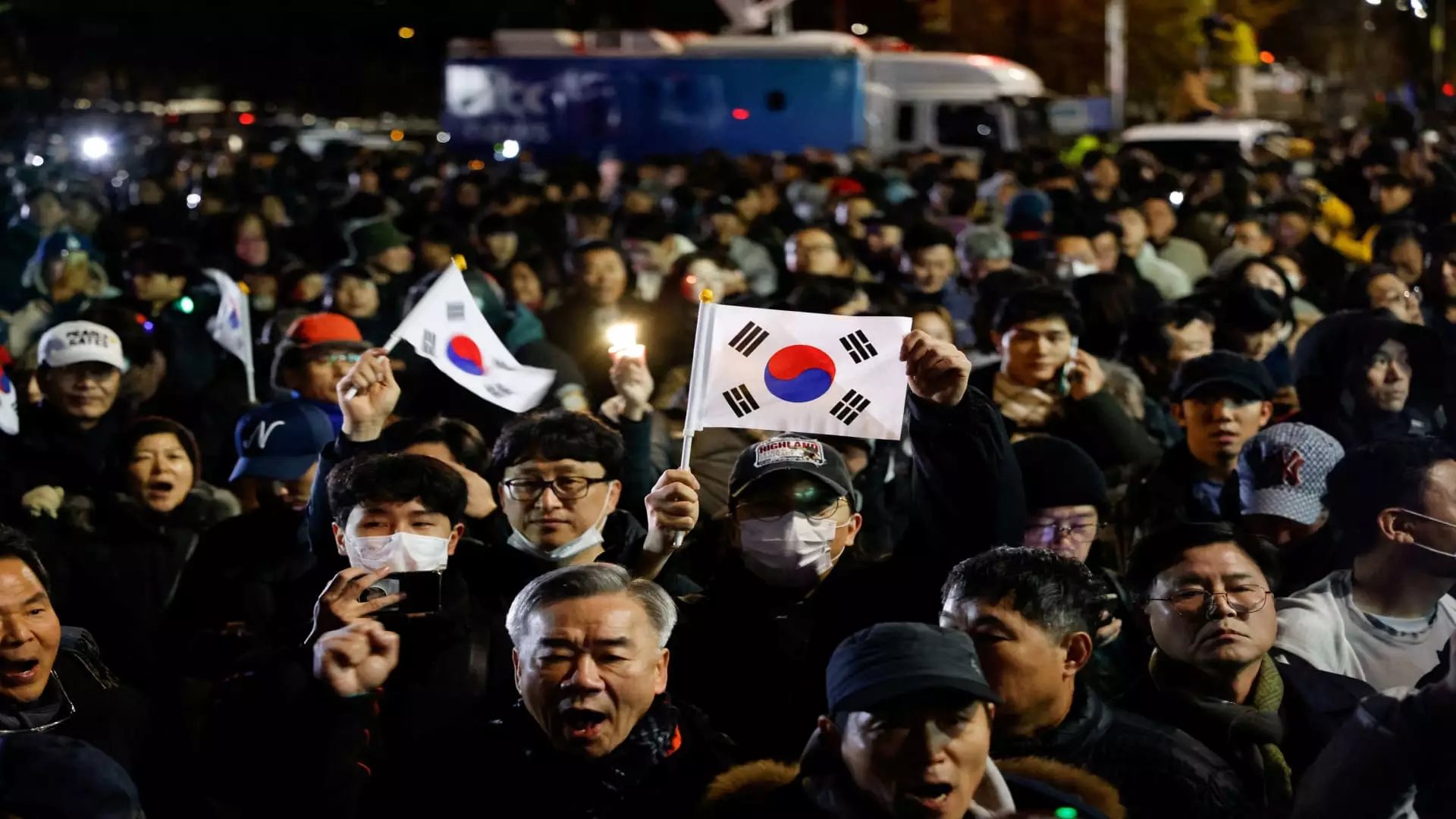On Wednesday, South Korean financial markets opened to significant losses, a direct consequence of the politically charged environment following President Yoon Suk Yeol’s sudden declaration and subsequent retraction of martial law. The Kospi index dropped by 1.8%, while the Kosdaq saw an even steeper decline of 2.4%. Such volatility manifests the anxiety among investors as public opposition mounts against Yoon, highlighted by widespread calls for his resignation amid increasing civil unrest and political pressure from opposition factions.
In a bold move to navigate through the crisis, opposition lawmakers have introduced a bill proposing the impeachment of President Yoon, which is likely to be debated and possibly voted on within the next 72 hours. The implications of this political maneuver could have far-reaching effects not just for Yoon’s administration but also for the stability of South Korean markets. Adding to the political uncertainty, Yoon’s chief of staff along with senior advisors have reportedly contemplated resigning collectively, further destabilizing an already precarious governing structure.
Recognizing the potential for widespread financial instability, the Bank of Korea convened an emergency meeting to address the deteriorating market conditions. Measures have been outlined, including the augmentation of short-term liquidity and mechanisms aimed at stabilizing the foreign exchange market. The bank has indicated a readiness to provide special loans if necessary to invigorate the market. Concurrently, reports emerged that South Korea’s financial regulator is prepared to activate a stock market stabilization fund, amounting to 10 trillion won ($7.07 billion), highlighting the authorities’ commitment to restoring investor confidence amidst this turmoil.
The repercussions of South Korea’s political saga are being felt across other Asia-Pacific markets. For instance, Japan’s Nikkei 225 and Topix indices each fell by 0.4%, while the Hang Seng index in Hong Kong saw a slight uptick of 0.1%. Meanwhile, mainland China’s CSI 300 index dropped marginally by 0.2%. Investors are not only reacting to the immediate crisis in South Korea but are also weighing newly-released GDP figures from Australia that indicated slower-than-expected economic growth, reflected in a 0.38% decline in the S&P/ASX 200 index.
Overnight trading in U.S. markets mirrored the turbulence seen in South Korea. The iShares MSCI South Korea ETF, which tracks numerous significant companies in the country, experienced dramatic fluctuations, sinking as much as 7% before closing down by 1.6%. This volatility highlighted how closely interconnected global markets are, as concerns over political stability can swiftly translate into economic repercussions across the globe. Conversely, major U.S. indices, including the S&P 500 and Nasdaq Composite, managed to inch higher, closing at record levels, despite the underlying global instability.
The unfolding political crisis in South Korea has prompted swift reactions from financial regulators and markets alike. The outcome of this turmoil not only poses risks for South Korean economic stability but also reverberates through a globally interconnected market. Investors and policymakers alike remain on alert as they navigate this complex landscape of political and economic uncertainty.


Leave a Reply